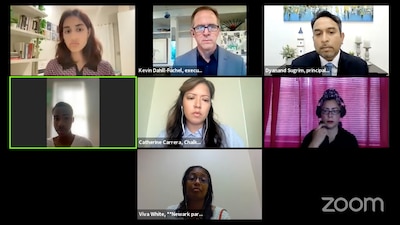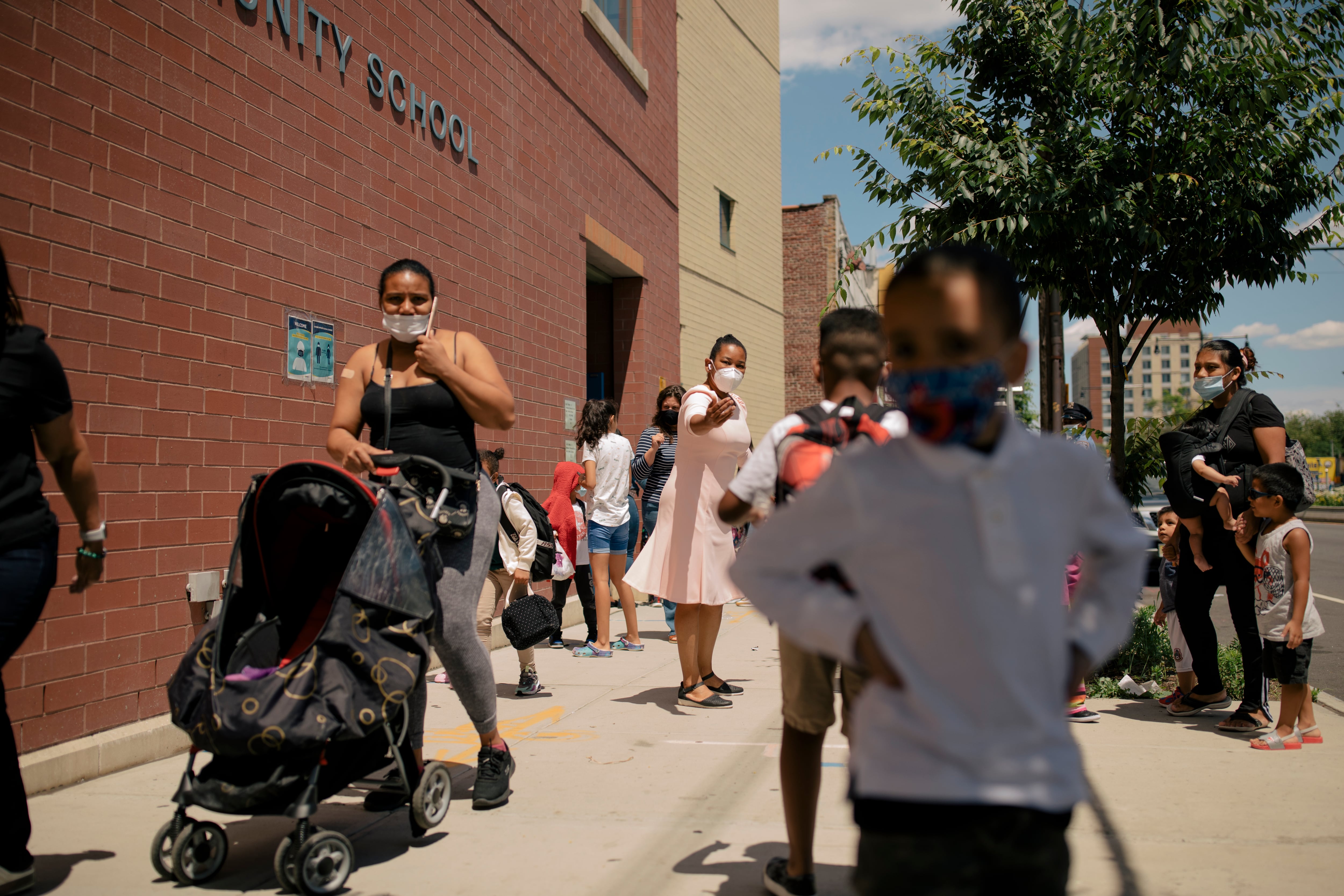Deshawn Sheffield is starting his junior year this fall, but the last time he stepped foot in a school building was during his freshman year. Returning to the classroom, after more than a year and a half of pandemic disruption, is making him anxious.
“A lot of people, including myself, have changed over the course of being at home,” said Sheffield, who attends Newark’s North Star Academy Washington Park High School. “We don’t really know your friends anymore.”
As the pandemic caused disruptions in learning, economic strain, and even the death of community members, schools across the country are grappling with how to meet students’ needs as they return to physical classrooms. Chalkbeat hosted a conversation Tuesday with educators, parents, students, and experts from Newark and New York City to ask how schools should adapt this year to meet their communities’ mental health needs, which some argued is an essential precursor to addressing any learning gaps.

Multiple panelists emphasized that mental health support should be a structured part of the school day and must extend beyond the beginning of the school year. For his part, Sheffield hopes there will be specific class periods devoted to mental health and wellness.
Dyanand Sugrim, the principal of Heritage High School in East Harlem, said his school’s advisory program is geared toward addressing students’ well-being. Through a partnership with the nonprofit group Counseling in Schools, each advisory class includes a mental health clinician.
“We can’t expect the students will walk in and walk into a guidance counselor’s office and just start having a conversation,” he said.
Teachers should also be prepared to have conversations that extend beyond academics, and might consider being vulnerable themselves, said Mily Cepeda, a bilingual special education teacher at Louise A. Spencer Elementary School in Newark. She plans to make it clear that adults are also dealing with mental health challenges.
“Going up front and [telling] some of the kids some of my struggles, it’s going to allow the kids to open up a little bit,” Cepeda said.
More broadly, some panelists cautioned against taking a narrow view of mental health as responding to an illness or problem. Kevin Dahill-Fuchel, the executive director of Counseling in Schools, said schools might frame a lot of their work as promoting social-emotional growth.
“When I say mental health sometimes that makes people think about something that’s wrong with somebody,” he said. “And I don’t think about it that way: I think about emotional well-being and emotional growth.”
You can find a full recording of the conversation here or below. The panel discussion is part of Chalkbeat’s Pandemic 360 series, a partnership with Univision41 that explores how COVID-19 affected school communities in New York City and Newark.






